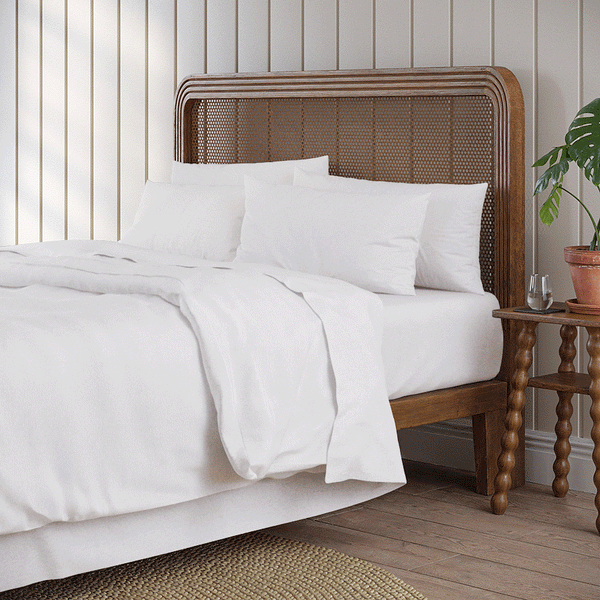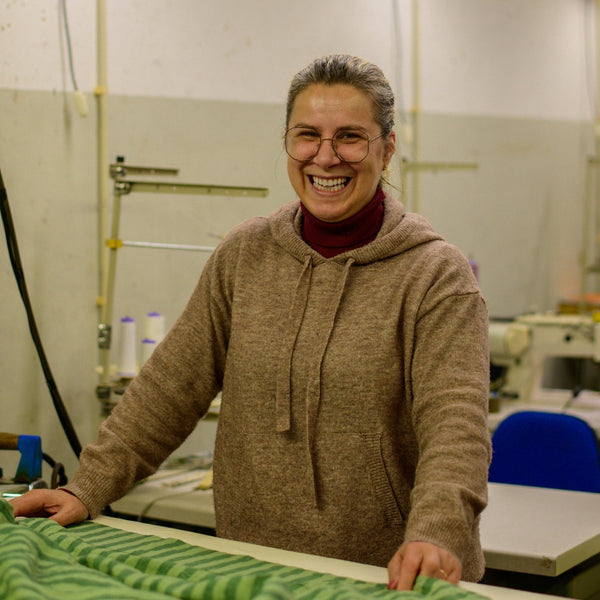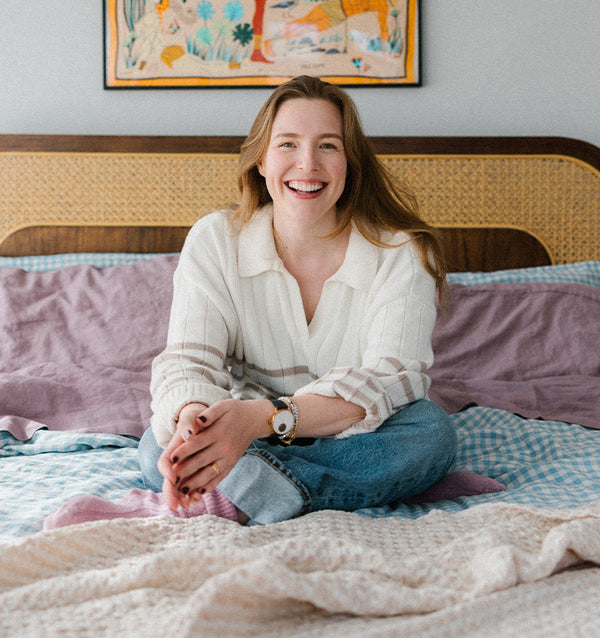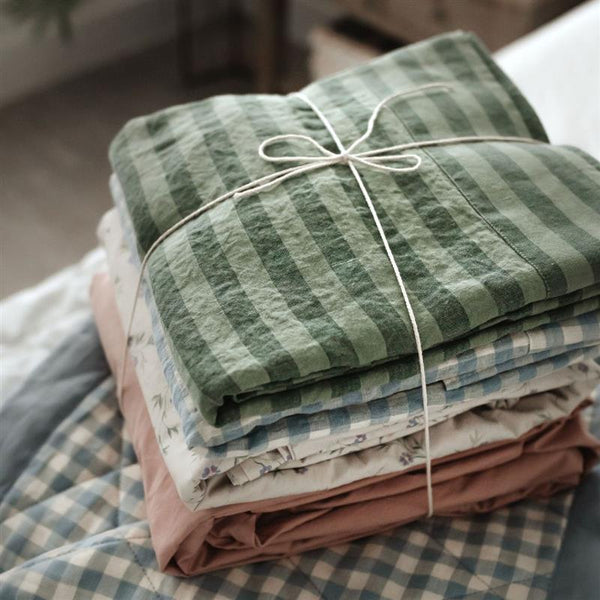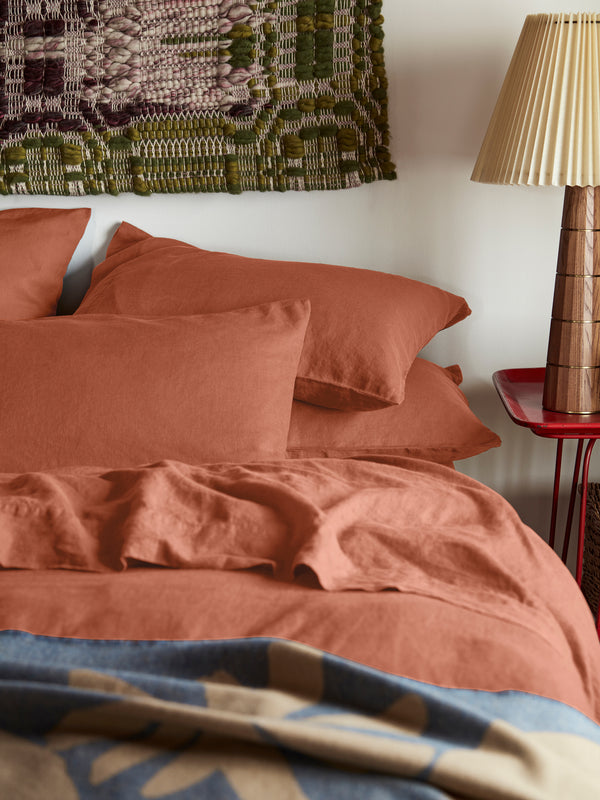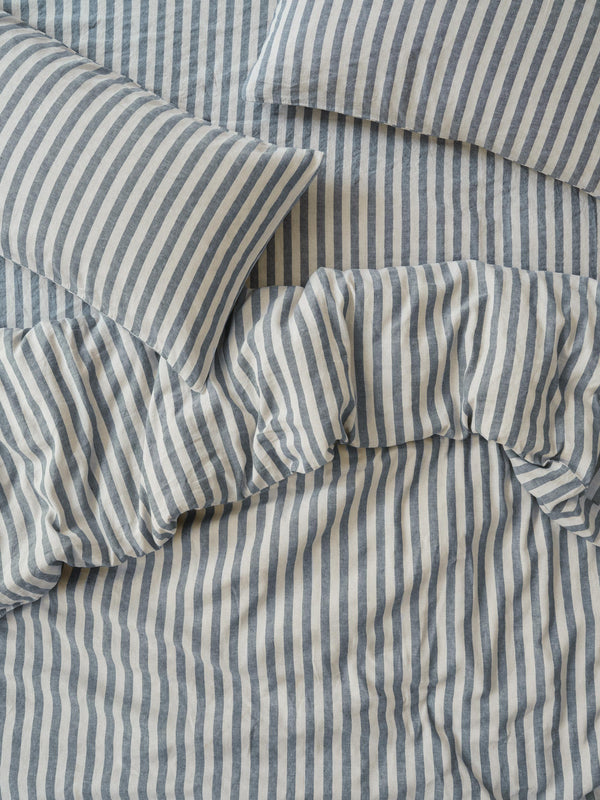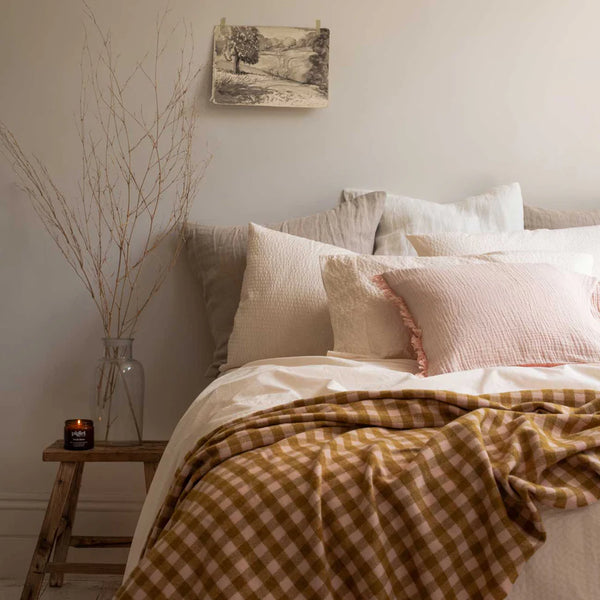The Slow Down - Watch it here
Key tips for a great night's kip
We’ve also gathered some ways to get the best night's kip and little tips to try when you’re struggling to get that golden shut-eye. The average earthling spends roughly ⅓ of their life in bed and so we reckon that time spent beneath the sheets should be high quality and as restful as possible.
When our bodies are in that sweet spot of deep sleep, we’re giving it the green light to rest and recover itself, promoting the growth of new nerve cells so it's better equipped to fight off potential disease and inflammation. After a restful night's sleep, you’re more likely to have increased energy and concentration levels, as well as reduced stress levels - it’s the ultimate reset.
There’s no ‘perfect amount’ of sleep. It can differ significantly from each individual, as age, stage of life and energy expenditure will all feed into how much sleep you should ideally be getting. It’s so important to better understand your personal needs when it comes to sleep, to reduce any additional stress that may impact on your wellbeing.

Introduce a bedtime routine
If you’re finding it tricky to switch off, it's really beneficial to implement a bit of structure so your body can start to recognise that it’s time to start winding down. Ensure your bedroom space is as dark as possible - blackout blinds to block any light pollution from the outdoors, removing screens from your bedroom and any LED lights that cast their tiny beams.
Limiting bright light exposure before bed will help trigger melatonin (the hormone that signals to your body, you’re ready to drift off). Instead, make use of candles, side lamps or my personal favorite - a Himalayan salt lamp, for a soft and sleepy glow.
Ensuring your bedroom is relatively cool, with good airflow will also aid easing into the land of nod. For a restful night’s sleep, the ideal temperature is between 60-67. Being too hot or too cold means you are more likely to wake up and your restorative sleep may be disturbed.
Embrace the morning light
Being exposed to certain lights at differing times during the day can have massively positive benefits on your body. Embracing brighter lights when you first wake helps to kickstart your body’s rhythm and sets you up to feel more energized for the day ahead.
If time permits, enjoy your first cup of tea or coffee out in the garden, listening to nature waking up, or take a meander to stretch your legs and adjust to the brighter, natural light.

Your bed linen matters
So you’ve switched off from wider world distractions, started to reset your circadian rhythm - time to build yourself a cozy hideaway. We’ve established that we humans spend a fair amount of time horizontal and drifting off, so why not make this space the most comfortable spot possible.
We’re firm believers that your bed linen plays a huge part in ensuring your bed becomes the ultimate sanctuary. That’s why we only offer bedding made from 100% natural fibres - linen and cotton. Linen is a textile made from the fibres of the flax plant. These long fibres allow the air to circulate through and around the fabric, making it very breathable. Both linen and cotton are thermoregulating, keeping you cool in the summer and warm in the winter - quite the allrounders. With age and wear, our bed linen gets softer and softer, so your skin is in for a real treat every time you nod off.

Fix yourself an evening brew
Your dreamy bed linen is waiting to be snuggled into, the lights have been dimmed and the candles are lit, now all that’s left to do is to pop the kettle on and pour yourself a cup of herbal tea to take up to bed. Choose a tea that's naturally caffeine-free, so you can drift off easily.
Sleep well!
